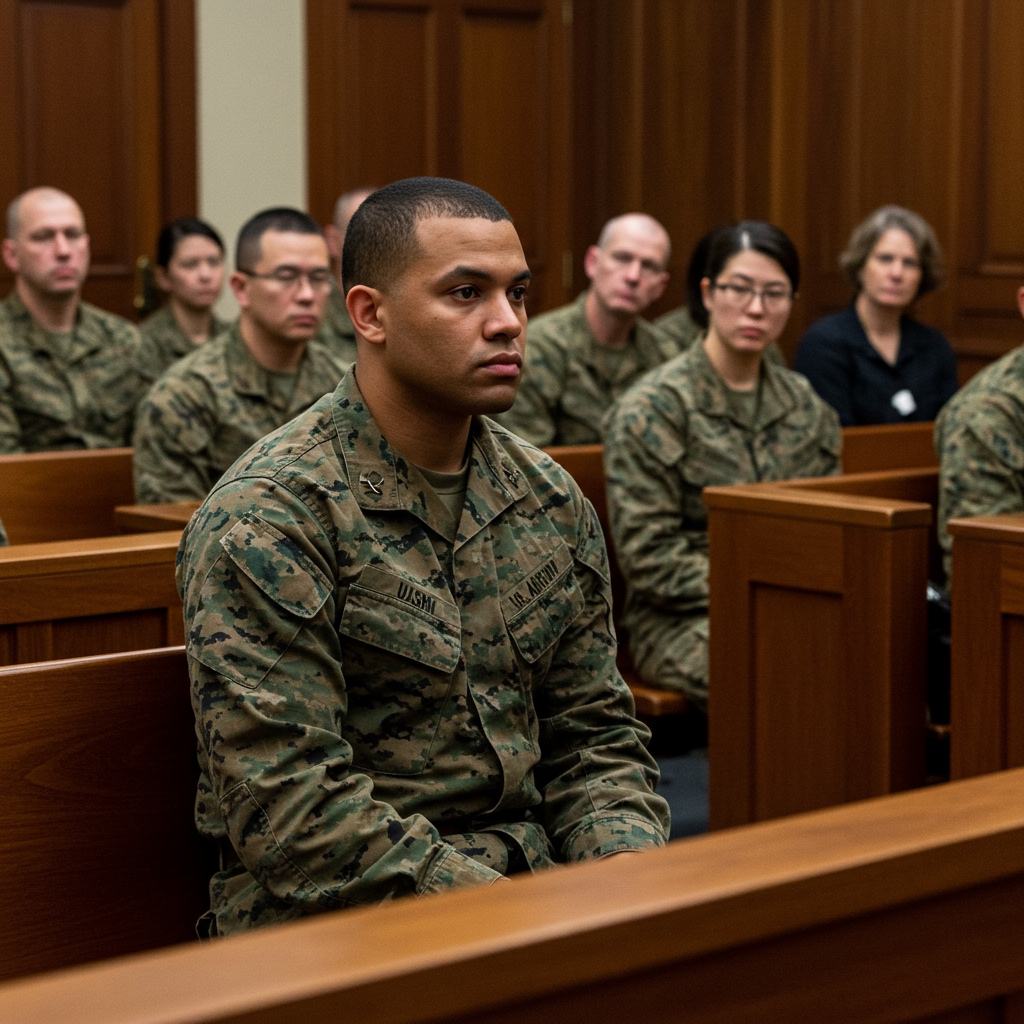US Marine Jailed Seven Years in Japan for Vicious Okinawa Attack
A U.S. Marine stationed in Okinawa, Japan, has been sentenced to seven years in prison after being found guilty of sexually assaulting a woman last year. The ruling, handed down by the Naha District Court, concludes a case that underscores ongoing tensions surrounding the significant U.S. military presence on the island.
Lance Corporal Jamel Clayton, 22, was convicted of non-consensual sexual intercourse resulting in injury following an incident in Yomitan village in May 2024. Presiding Judge Kazuhiko Obata delivered the sentence, which included credit for over eight months Clayton had already spent in pre-trial detention.
Details of the Assault and Court Findings
According to testimony and court evidence, Clayton attacked the woman, who is in her 20s, by choking her from behind for an estimated one to two minutes while attempting sexual intercourse. The victim sustained injuries to her eyes and mouth that required approximately two weeks to heal.
Prosecutors had sought a harsher sentence of 10 years, emphasizing the severity of the crime. Judge Obata described Clayton’s actions as “vicious” and “dangerous enough to result in death,” noting the victim foresaw her own death during the attack, causing tremendous mental anguish.
Clayton had pleaded not guilty and denied using force or having sexual intent. His defense suggested the victim was intoxicated and that her testimony contained inconsistencies. They even raised the possibility that the victim’s boyfriend might have framed Clayton out of jealousy.
However, the court found the victim’s testimony to have a “high level of credibility” and deemed it “precise and authentic.” This was supported by evidence such as photos of bloodspots in her eyes consistent with sustained neck compression, and the fact that she reported the incident swiftly to police and a friend. The court dismissed the defense’s framing argument due to lack of evidence.
Context: US Military Presence and Local Opposition in Okinawa
This case occurs against a backdrop of deep-seated anti-base sentiment among residents of Okinawa, which hosts more than half of the roughly 54,000 U.S. troops stationed in Japan. Crimes committed by American personnel have historically fueled significant anger and protests. One major demonstration 30 years ago saw tens of thousands take to the streets following the rape of a 12-year-old girl.
More recently, the Clayton case is one of at least four sexual assault allegations involving U.S. service members in Okinawa within the past year alone. These include the case of U.S. Air Force Senior Airman Brennon Washington, who was sentenced to five years for the rape and kidnapping of an underage girl in December 2024 (a ruling Washington has since appealed).
The U.S. Marine Corps stated they cooperated with the investigation and monitored the trial, commenting that Clayton’s behavior does not reflect the values or standards expected of Marines. In response to recent incidents and public backlash, the U.S. military has imposed tighter liberty restrictions on troops in Japan.
Local opposition extends beyond criminal behavior to include grievances like aircraft noise and pollution from the bases. While proposals have been made to relocate facilities to less populated areas within Okinawa, many residents advocate for the complete removal of U.S. bases from the prefecture.
Despite strong local sentiment, experts widely believe a complete withdrawal is unlikely due to the crucial nature of the U.S.-Japan military alliance. Japan relies heavily on Washington for security in the face of regional challenges, including China’s growing territorial claims and North Korea’s ongoing missile tests.
Notably, in response to issues surrounding notification of local authorities about such incidents, the Okinawa prefectural police implemented a new system in July of the previous year (July 2024) to ensure the prefectural government is informed whenever U.S. military personnel are arrested or their cases referred to prosecutors.
Following the sentencing, Clayton’s defense attorney indicated that they would discuss the possibility of an appeal with him. Judge Obata concluded by expressing hope that Clayton would reflect on his actions and live a peaceful life upon his eventual return to society.




